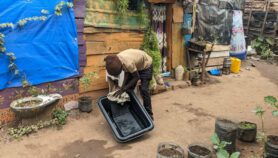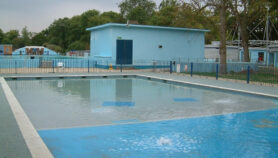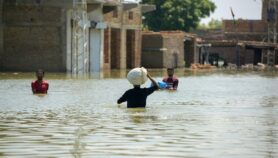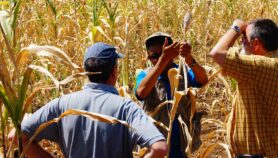By: Calestous Juma
Send to a friend
The details you provide on this page will not be used to send unsolicited email, and will not be sold to a 3rd party. See privacy policy.
In a recent speech, UN Secretary-General Kofi Annan set out five priorities for the World Summit on Sustainable Development (WSSD) to be held in Johannesburg: health, energy, water, agriculture and biological diversity (see Annan sets priorities for Johannesburg summit). These areas represent a convergence of international opinion on issues where collective action to implement sustainable development objectives is both feasible and desirable.
Perhaps the most instructive aspect of Annan’s outline for action, however, is the fact that much of the knowledge needed to promote sustainable development through these entry points is already available. What is now needed is not so much new knowledge, but the creation of new forms of partnerships that can help leverage the knowledge that exists and turn it into organised action.
All the necesssary global agreement has been reached; the time has come to shift the focus to the local level, where action will make a difference. It is through local action that the best chance lies of enriching the quality of global decision-making.
Radical departure
Annan is calling for efforts to design new forms of institutional arrangements that can facilitate the use of available knowledge, as well as provide the basis for the generation of new knowledge. This is a radical departure from conventional approaches, which tend to define the success of international conferences in terms of the number of participating heads of states, grand targets, diplomatic eloquence and screaming headlines.
The outcome of the WSSD must be different. Its success will depend on whether the global community is sufficiently inspired to embark on a myriad of initiatives at all levels of human organisation (as already illustrated by the flowering of Local Agenda 21 activities worldwide). These initiatives will be guided by one message: the global community should use available knowledge as an input into organised action.
To do this effectively, we need to start looking to new institutions, mostly with a local base, for action. Participants coming to Johannesburg will need, for example, to be prepared to reach out to institutions of learning — high schools, colleges, universities, research institutes and the like — at all levels. But these institutions will themselves need to take responsibility for human and ecological well being in their own home communities.
At the same time, action-oriented institutions such as conservation organisations and environmental groups will need to become learning institutions. Many already are, but do not see themselves as such. They teach local communities to manage natural resources, and grapple with new teaching methods and ways of reaching out to the wider communities. But they often lack the links to research institutions that could enrich their actions with greater in-depth knowledge.
Role of governments
In addition, private corporations — key institutions for transforming knowledge into products and services — will continue to be critical players in the transition to sustainability, in particular through their contributions to technological innovation and management change. The rising demand for corporate responsibility will continue to serve as a source of ideas for achieving this transition within enterprises.
Governments must do their part by creating the legislative, policy and political environment needed for these institutional innovations to occur. They must give priority to sustainable development at the highest level of political leadership and across the whole administrative spectrum. Much progress is currently hampered by the perception that sustainable development is the responsibility of ministries of environment. And many in these ministries see sustainable development as another opportunity for bureaucratic aggrandisement.
In addition to political leadership at the national level, reform is needed at the international level to provide the much-needed inspiration for these changes. Arrangements for economic integration at the regional and sub-regional level are already emerging worldwide. The most elaborate is the European Union, but similar experiments are underway in all regions of the world. A critical opportunity now exists to place the sustainable development agenda within an integrated approach to regional and sub-regional development.
Changes in the UN
At a higher political level, the United Nations operates regional economic and social commissions, as well as regional offices that address health, energy, water, agriculture and biological diversity. The Johannesburg summit could start a process of creating strategic partnerships on sustainable development between these offices. At a minimum, the regional economic and social commissions could function as sustainable development commissions, if they are able to focus on enhancing the scientific and technical basis of their work.
Corresponding adjustments need to be made in the secretariat of the United Nations in New York. The current Economic and Social Council (ECOSOC) and its Department of Economic and Social Affairs should be the de facto sustainable development council and department for the UN system.
The current Commission on Sustainable Development and its secretariat could then focus on monitoring the implementation of Agenda 21, highlighting progress through a regular flagship Sustainable Development Report, for example, that would capture the lessons from local efforts being carried out worldwide.
‘Action without knowledge is blind’
This repositioning of institutions, however, will not be effective unless it is accompanied by systematic efforts to use the available scientific and technological knowledge for sustainable development. This goal will be served by appointing officers to provide scientific advice to these institutions through procedures that ensure that the information they provide is relevant, credible, legitimate and timely. In turn, institutions of learning will need to secure the best available advice on how they can contribute in practical ways to the sustainable development of their local communities.
The Johannesburg summit will be a welcome reminder that knowledge without action is hollow, but that action without knowledge is blind. Knowledge and action need to come together wherever people seek to solve practical problems. The future for sustainable development lies in localised actions whose lessons are shared globally.
The author is director of the Science, Technology and Innovation Program at Harvard University’s Kennedy School of Government, and Chancellor of the University of Guyana.
© SciDev.Net 2002













